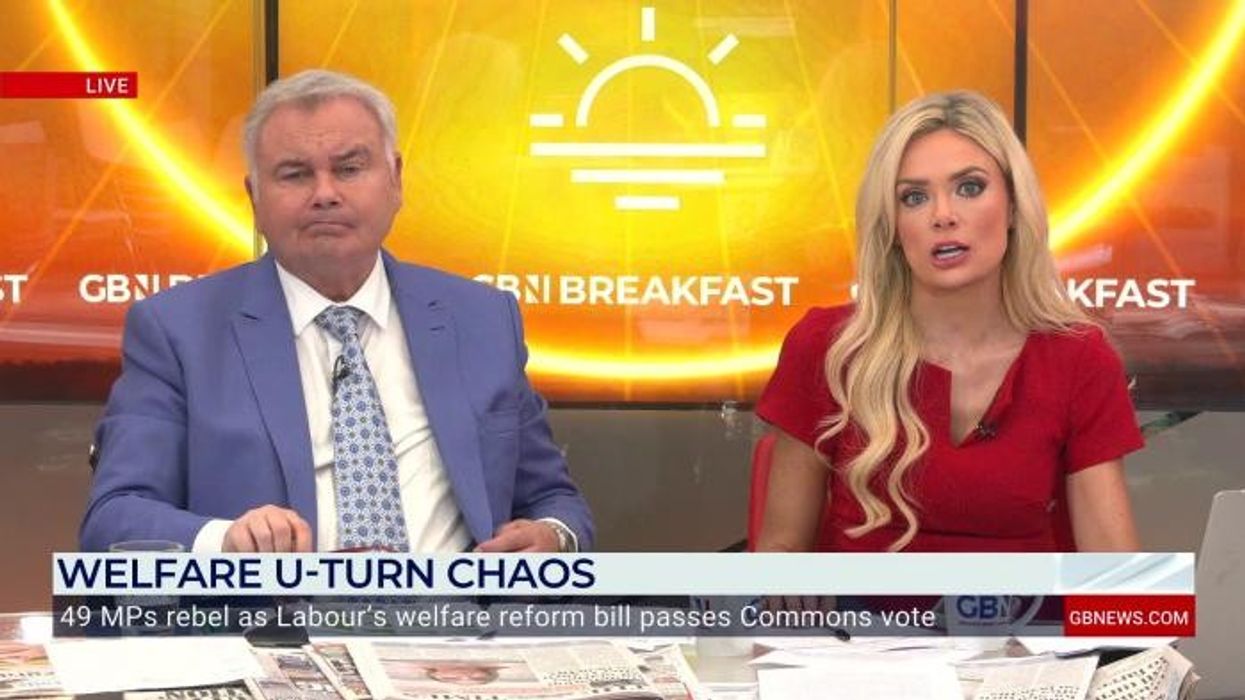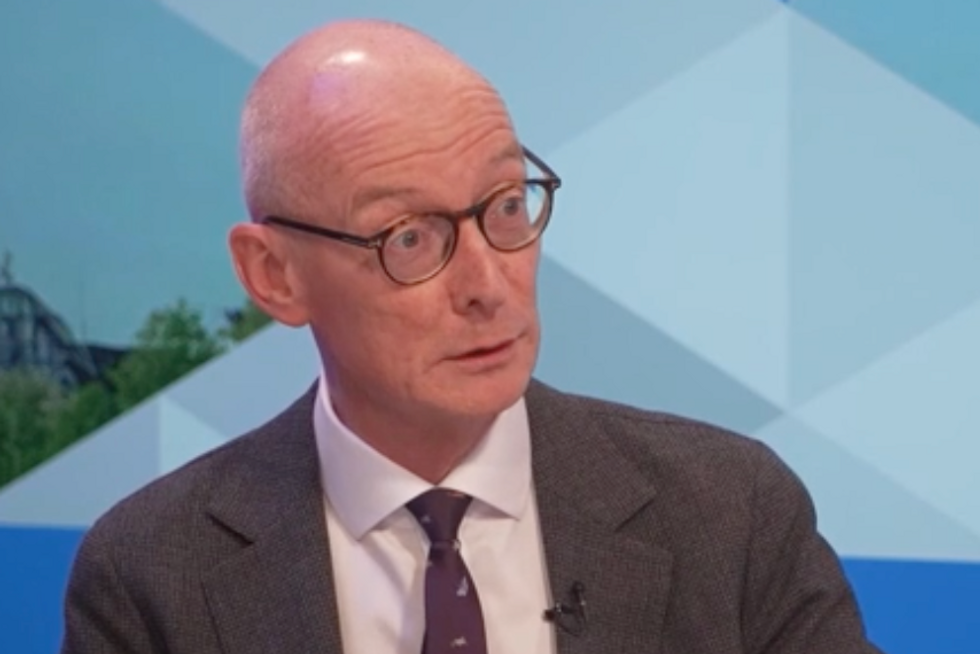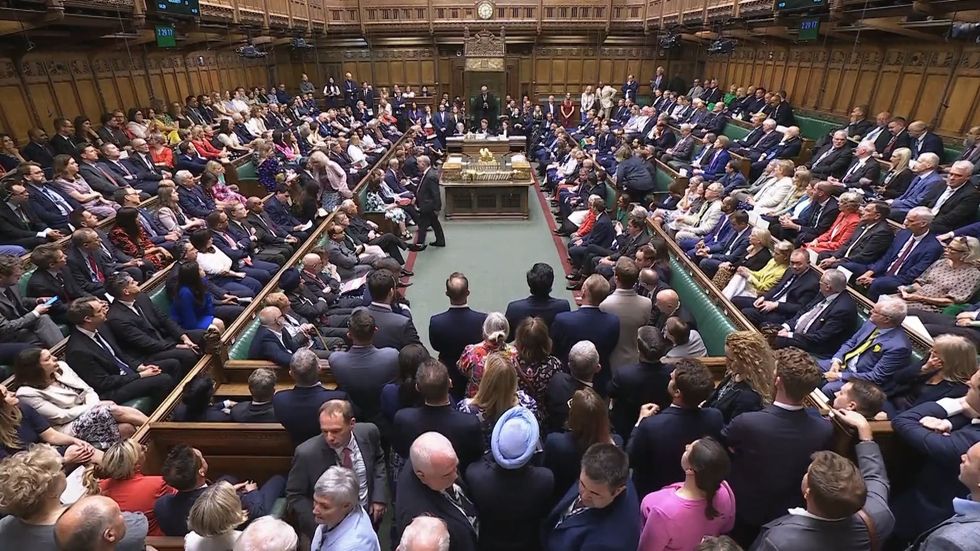Labour hints at new tax rises after capitulation to benefits vote rebellion

Pat McFadden comes out to bat for Sir Keir Starmer over the benefits bill vote |
GB NEWS

Pat McFadden admitted the decision to water down the proposed welfare changes would result in 'financial consequences'
Don't Miss
Most Read
Trending on GB News
Senior Labour Minister Pat McFadden has hinted at tax rises this autumn after Sir Keir Starmer's benefits bill concessions appeared to wipe out an expected £5billion worth of savings.
The Chancellor of the Duchy of Lancaster admitted there would be "financial consequences" after the Prime Minister dropped a planned crackdown on the personal independence payment (Pip).
Despite warning about the £22billion blackhole left by the previous Tory Government, Starmer's decision now leaves the Treasury looking to plug a £4.6billion gap in annual savings.
A group of 49 Labour MPs still mounted a mini-revolt against the Prime Minister, with tense negotiations ultimately whittling down the number of rebels from a defeat-inducing 170.
Economists at the Institute for Fiscal Studies and Resolution Foundation now warn Chancellor Rachel Reeves cannot expect any “net savings” by 2029/30.
Addressing potential tax changes, McFadden told Times Radio: “This is a decision that will have financial consequences.
“The process of the last couple of weeks does have financial consequences.
“They will all be taken together with all the other moving parts that there are in the economy, in the fiscal picture at the Budget, and that will be set out at the time.

Sir Keir Starmer
|PA
“But I’m not denying that when you set out on a plan that has a cost attached to it, and then you have to change that or take it forward in slower time, that is a decision with financial consequences.”
McFadden instead pledged that Starmer's Government will “stick to the tax promises we made in the manifesto”, ruling out any increase to National Insurance, income tax or VAT.
However, the Wolverhampton South East MP stressed he is “not going to speculate” on what could be in the budget.
The potential "financial consequences" would likely come in the form of tax rises, an increase in borrowing or spending cuts.

Pat McFadden
| GB NewsShadow Chancellor Mel Stride also warned that tax rises could be on the way.
Stride said: “Tax rises are on the way to pay for Labour’s mismanagement of the economy.
“Hard-working families will have an agonising summer waiting to hear how Rachel Reeves will claw back the cash to make up for the failings of this weak Prime Minister.”
Despite making a number of concessions to appease Starmer’s disgruntled backbenchers, almost 50 Labour MPs voted against the legislation.

The House of Commons debated the bill yesterday
|PA
The legislation still cleared its first major parliamentary hurdle, with 335 voting in favour and 260 voting again.
Deputy Prime Minister Angela Rayner, who played a pivotal role in negotiating with Labour rebels, this morning sought to reassure people who had been “scared” about the proposed benefits changes.
Rayner told ITV: “Anyone listening to your show today, they know that there will be no changes to their welfare.
“I want to make sure that people are reassured by that, because a lot of people have been scared about what’s going to happen.”

Keir Starmer
| GETTYDespite looking to reassure benefits claimants, taxpayers remain fearful about an imminent tax hike in the autumn.
Helen Miller, deputy director of the IFS, said: “Looking to this autumn’s Budget, the Chancellor, Rachel Reeves, can now expect forecast spending on social security to be higher than she had been planning back in March (when the Office for Budget Responsibility incorporated expected savings from these reforms into the fiscal forecast).
“The changes to this Bill will effectively halve her margin of error against her main - and apparently ‘cast iron’ - fiscal target, and that is before any potential downgrade to the underlying fiscal forecasts.
“Since departmental spending plans are now effectively locked in, and the Government has already had to row back on planned cuts to pensioner benefits and working-age benefits, tax rises would look increasingly likely.
“This will doubtless intensify the speculation over the summer about which taxes may rise and by how much.”
More From GB News










